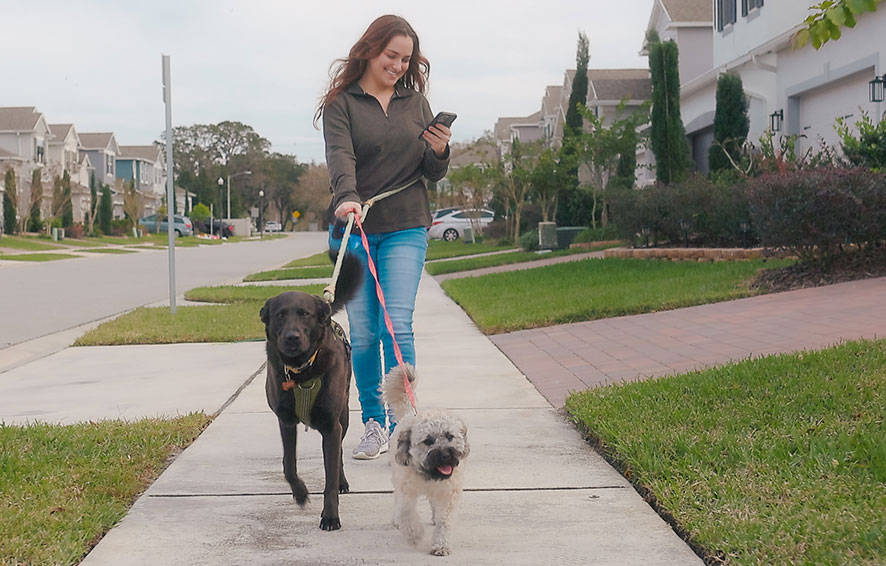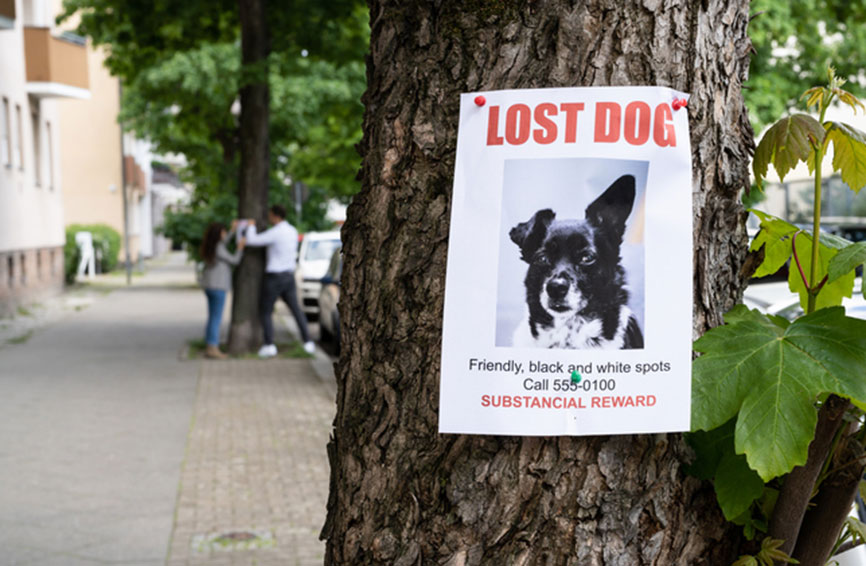
Setting out to bring a new fuzzy member into your family may seem like a dream — and there are many wonderful things about doing so — but it’s important to be cautious and alert through the process. Not only are there unethical puppy mills to avoid, but there are heartless scams being conducted on unsuspecting buyers. Below we’ve covered some of the common puppy scams, and have also provided you with a brief guide on safe and ethical puppy shopping.
Common Internet Puppy Scams
Internet puppy scams can take on many forms, but these are some of the most common scams we’ve seen:
- The Rare Breed Scam: You’ve searched forever for a specific kind of breed — one that’s difficult to find and often very expensive to purchase. You eventually come across an ad with the perfect puppy. There may even be pictures of the dog, and the seller is often quick to respond to your questions and may even send additional photos. However, the seller doesn’t live near you, and they require a wire money transfer (not check or online payment system).. From here, you either never hear from the seller again, or they may insist that something is wrong and needs to be addressed before completing the transaction (such as providing extra funds for a new crate or shipping insurance). In either case, you will never receive the puppy, and the seller will stop responding.
- The Free/Low Cost Puppy Scam: This is very similar to the above scam, only the seller says that the puppy is “free to a good home” or that they’re selling a well-known breed for a very low price. They may even use very convincing language, such as referring to the pets as their “babies” or have a sob story about why they must give their puppy away. They may even beg you to take good care of their pet and seem genuinely upset to part ways. Like above, the seller is not located near you and requests a money transfer for shipping costs or the low fee. Again, they may say the money didn’t go through or that there was a problem and request a second transfer, or you’ll never hear from them again.
- The Bait and Switch Scam: This scenario typically occurs when you’re looking for a specific breed. The seller will provide some photos of the puppy, answer your questions, and may provide you with false details from a legitimate animal shipping company. After sending the funds, you do actually receive a puppy, but it is not the puppy from the pictures. It may not even be the same breed! You will either have a very difficult time returning the puppy, or you may never hear from the seller again.
- The False Sanctuary Scam: In this scam, the seller indicates that they’re selling puppies from a rescue house or sanctuary. However, their adoption fees are astronomical and they’ve justified the costs to you. You may get the right kind of puppy shipped to you, but it may be from a puppy mill or another unethical operation.
A Quick Guide to Safe and Ethical Puppy Shopping
Simply being aware of the above scams will help you avoid being taken advantage of as you search for a new puppy. Still, these scammers can be very convincing, and it may be difficult to know truth from scam while in the middle of your heartfelt search. To prevent being ripped off or misled, adhere to these guidelines:
- Always Buy or Adopt in Person: Even if you have searched online for the perfect puppy, make sure you exchange cash and puppy in person. Even offer to fly out to the location if they’re not located near you. If the seller cannot accommodate this very basic request, it is very likely a scam.
- Check Their Spelling and Grammar: Sounds silly, but many puppy scams are conducted by people who do not live in the USA and, as such, the scammer may not speak English very well. The ad will often be riddled with spelling errors, odd sentence construction, or grammatical errors.
- Ask Detailed Questions: Whether you suspect it’s a scam or not, make sure you ask plenty of relevant, detailed questions. For example, ask for medical documents, images of the puppy from different angles or a video, the puppy’s exact age and information about its parents, etc. If the seller cannot answer these questions or deflects, it is likely a scam.
- Never Wire Money: Pay with a money order or cash in person, and never wire the money. Wired money cannot be refunded, and you cannot report it as a scam with money wiring services. If the seller agrees to meet with you but requests money first, do not comply.
- Always Buy from a Reputable Source: Extensively research every detail about the seller to ensure it is a reputable, ethical source. Google their email address and text from the ad to see if anything comes up, do a reverse search on the telephone number’s area code to see if it matches the indicated location, complete a reverse search on the puppy image from the ad, and ask for details about the shipping company they plan to use. If they say they’re from a certain sanctuary or rescue house, call or visit that location and ask about the details of the puppy you found online.
- Avoid Puppy Mills: There’s an internal dialogue and ensuing dilemma that occurs when dealing with puppy mills. The puppies are adorable, and you feel morally responsible to help them out of these awful conditions. What you must remind yourself of, though, is that by purchasing an animal from a mill, you’re actively supporting that industry. Signs you’re dealing with a puppy mill include certain breeds being available in large quantities, “new” breeds, the seller being unable to verify veterinarian information, puppies sold before they turn eight weeks old, and the same person or organization selling pets at multiple events, including flea markets and garage sales. There are more red flags listed here.
A good way to make sure you’re shopping ethically — and to avoid being scammed — is to shop in person at local foster homes and rescues. These locations offer puppies who truly need a good home (even if they may not be a “rare breed”) and they are regulated and safe. As soon as you’ve adopted your favorite pup from a reputable source, you can go ahead and start stockpiling toys, treats and signing up for puppy insurance.






